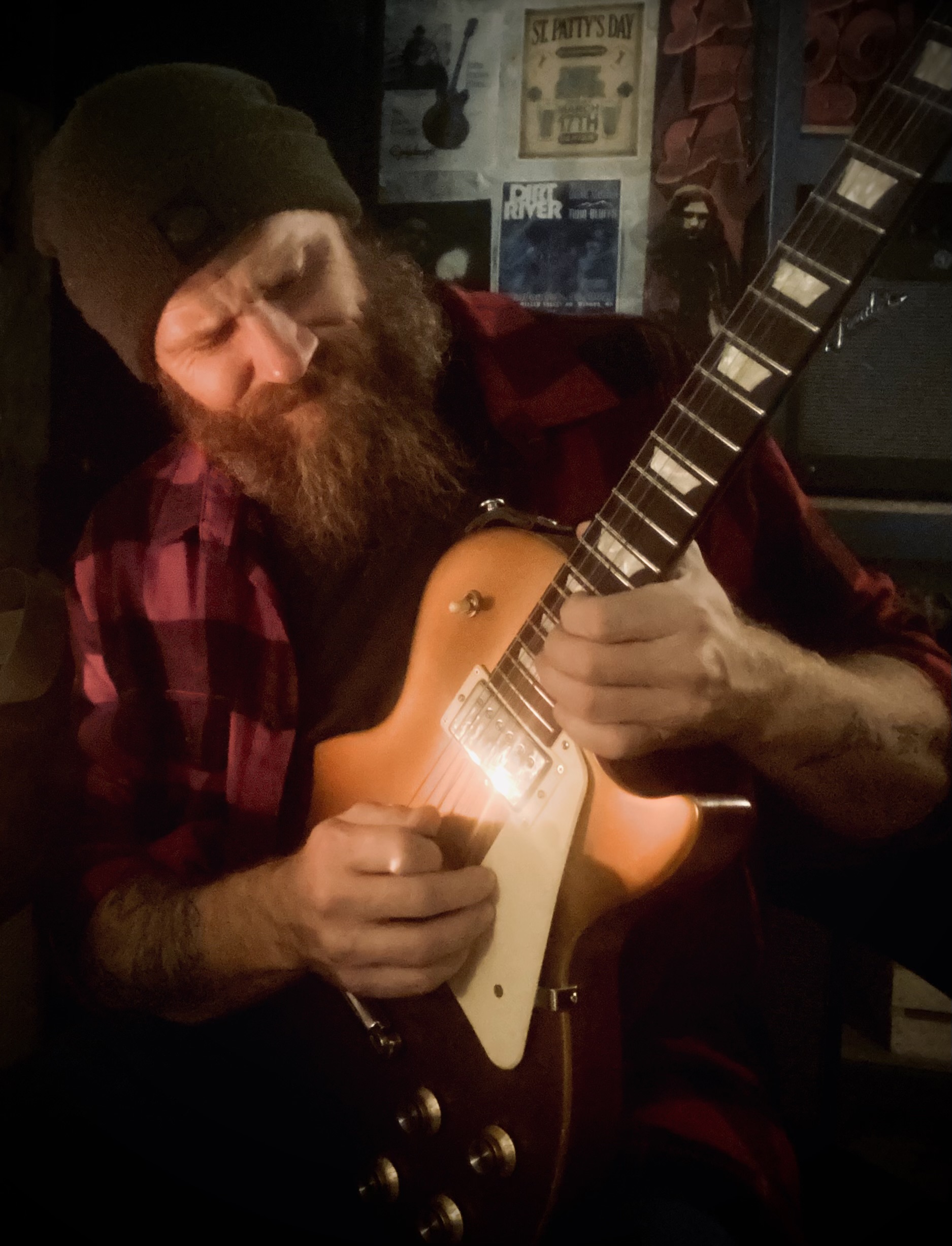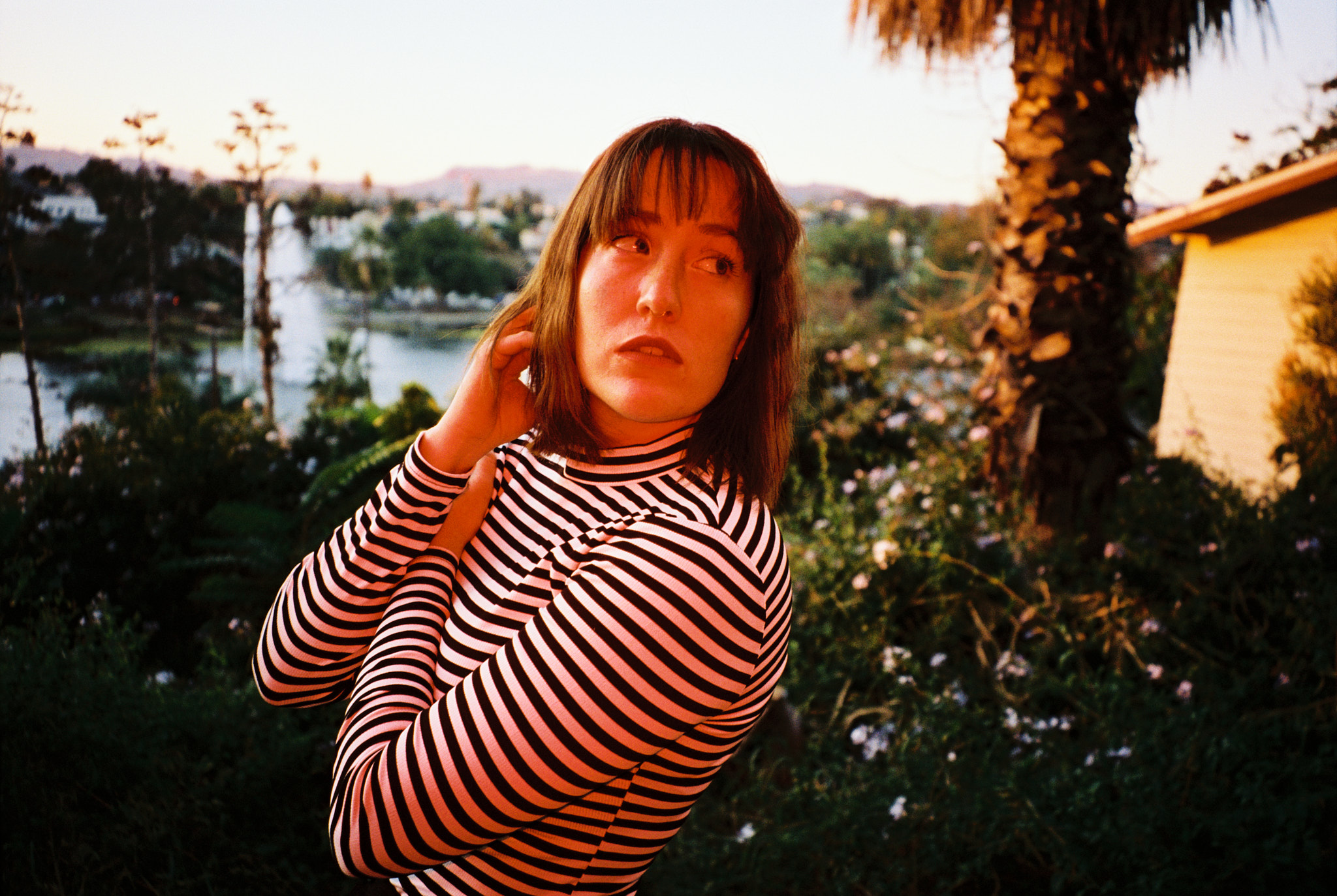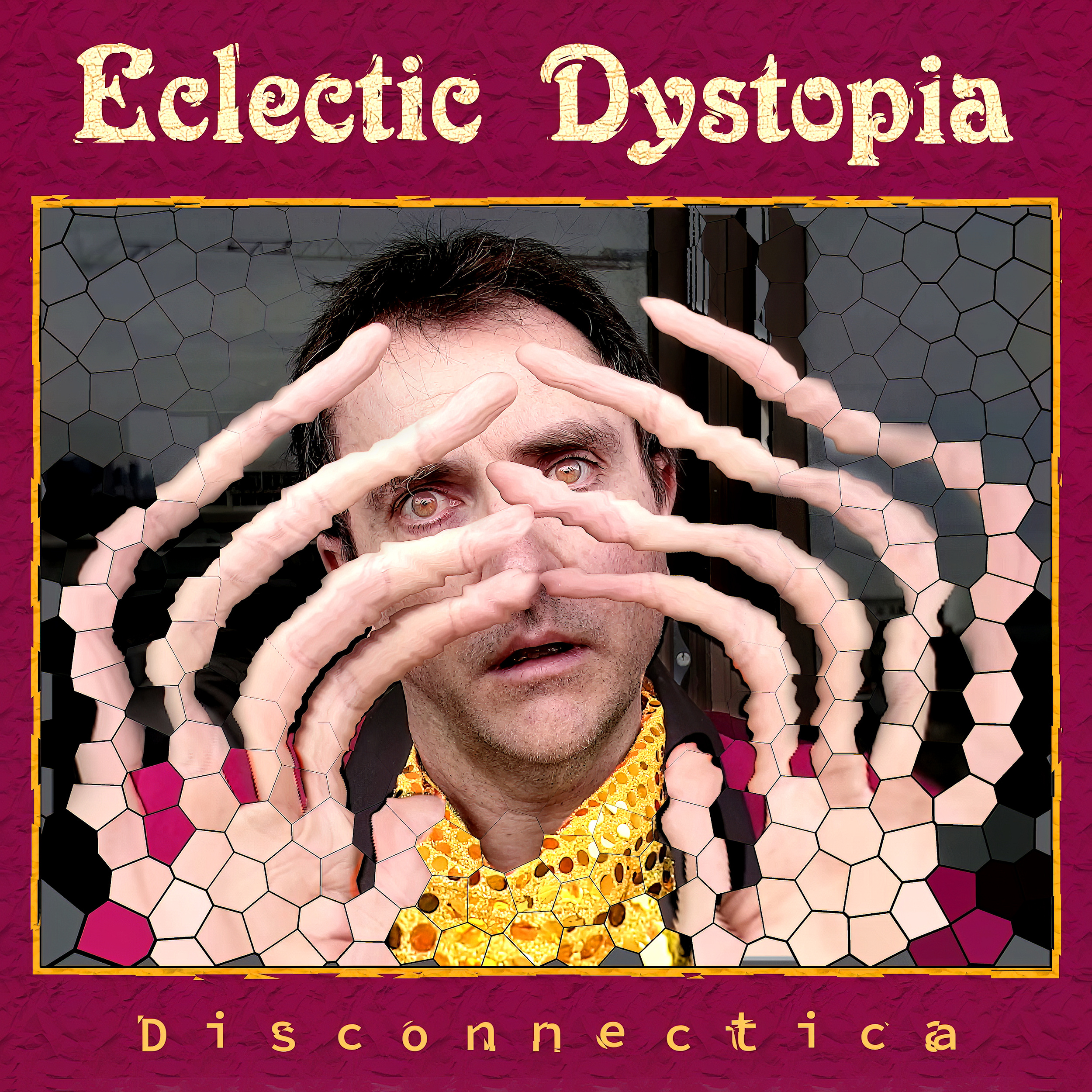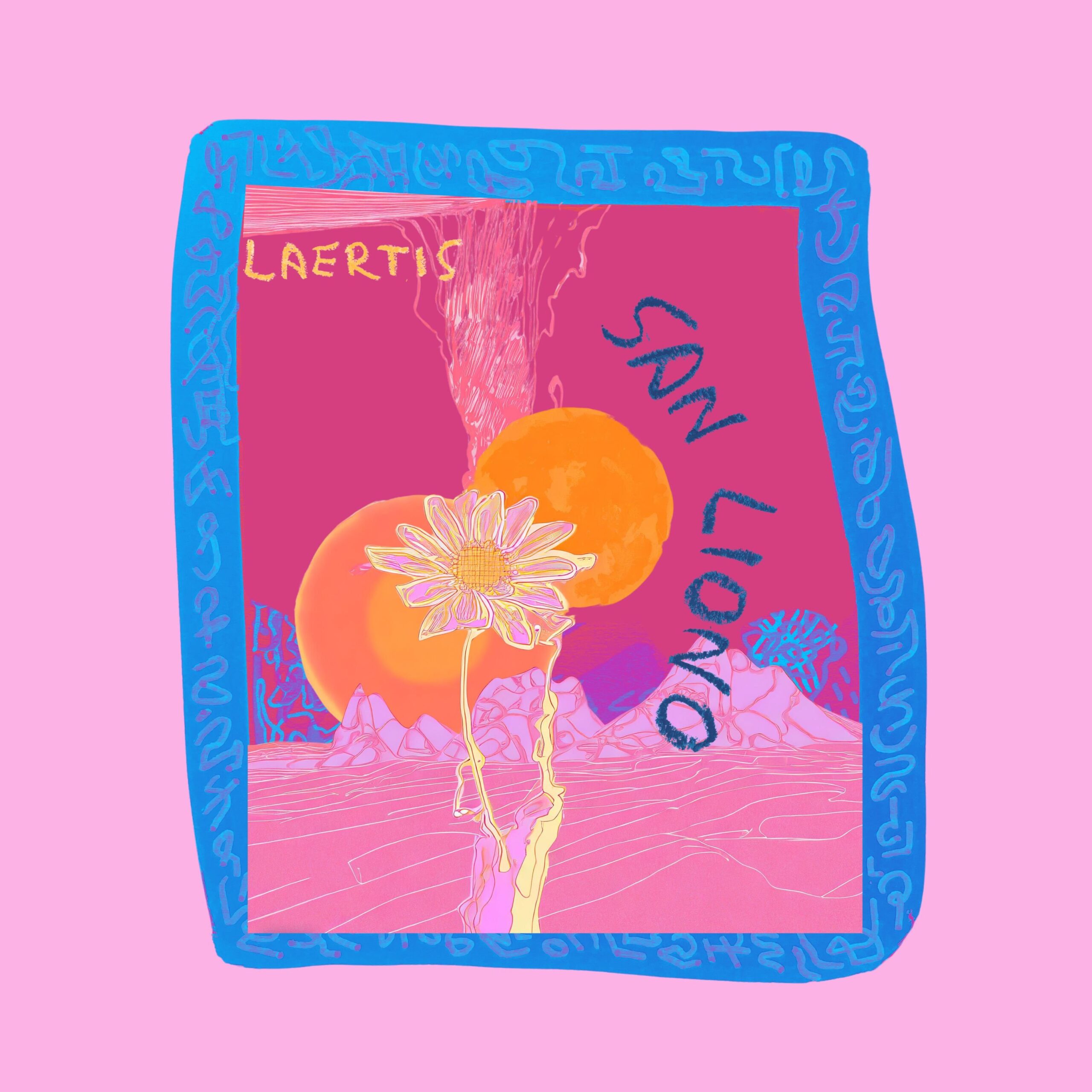
Q: Hi! Kevin, you’ve had a diverse musical journey, spanning from death metal to classic rock. How have these varied genres influenced your approach to your solo project and specifically the creation of “Let Go”?
A: Eclectic musical experiences absolutely influenced the approach I took in writing and recording “Let Go.” It’s kind of a weird song, musically, and moves in a couple different directions. There’s only one chorus and then it breaks down and the last chorus is a guitar harmony. That said, I didn’t feel like it needed another vocal chorus before the outro. It just felt done, so I left it that way. I think you can hear some Sabbath in there and some Pantera, along with some 70’s hard rock. I’m not trying to sound like anything and I don’t really plan anything when I write, so things just are what they are. The lyrics are about my own personal 20 year battle with alcoholism.
Q: With an impressive history of performing at notable events and opening for major bands like Megadeth and Black Label Society, which of these experiences stands out the most to you, and why?
A: In the mid-2000s my band Dirge opened up for Black Label Society at the Rave in Milwaukee. There were three stages and we were on one of the smaller ones before the main stage started. We were just about to release an album and had a bunch of copies of a three-song-sampler with us to give away. When we started playing, tons of people started dumping in from the other rooms to see us play. We had like 25 minutes to play and through word of mouth, the room was packed within 10 minutes of us starting. It was kind of a sludgy, de-tuned thrash metal, and BLS fans just ate it up. Even the sound guy liked it, and when you’re the opening band for the opening band, sound guys usually don’t give a shit about you, they just want you to shut up and move fast. When we were done, people raided the sampler box like zombies to a dead body and we walked away empty handed. It definitely helped grow a larger fanbase.
Q: Transitioning to a solo project can be a significant change. What motivated this shift, and how does working solo compare to being in a band like Dirt River for you?
A: I’m still in Dirt River and I love it. We play my original work as well as some cover songs. I’ve known my bandmates most of my life and we vibe really well with each other. It’s my favorite band, but everyone has full-time jobs and families, so recording with a band is very difficult if you want to stay timely and relevant. We do some club shows to showcase the original songs, but we also do a ton of bar gigs and other stuff where you play for four hours and just grind it out. Those are actually the shows I like best because we’ve gained an audience of working-class followers and there’s nothing better than knowing that you’re making a difference in their lives. People need live music, and concerts have gotten so obscenely expensive that the local music scene is thriving again.
My solo stuff is fun because I can build myself as the brand. I can be brutally honest in the lyrics and make whatever kind of songs I want, and it all ends up just sounding like me. If I want a 4-guitar harmony or some crazy shit like that, I can do it and I don’t have to answer to anyone. It gets nightmarish in my brain sometimes and I don’t always know what’s going to come out musically. It’s nice that I don’t have to explain it to anyone or try to convince anyone to play something a certain way or whatever. I can record it whatever way I want.
Q: Your life has been rich with experiences, from military service to personal trials. How have these experiences influenced the themes and emotions in your music, especially in songs like “Let Go”?
A: “Let Go” is about someone struggling with drug addiction. It’s about me, but it could be about anyone. The military royally fucked me up in good ways and bad. It really deranged who I was and how I saw myself as a person and spit me out as someone else; maybe similar on the surface, but not on the inside. Those are some of the best and worst experiences of my life and they taught me about brotherhood and survival more than anything else. They also left me with a shit-ton of anger issues and alcohol dependency. Drinking comes with the territory in the military and when you’re taught to replace healthy emotional expression with booze and fighting, reassimilation into the civilized world is a bit of a puzzle. The reality was that I never knew what healthy emotional expression is anyway. The military was just a place full of like-minded individuals.
I eventually saw how my actions were affecting my family and knew I had to fix something. I checked myself into the VA to get some help in 2020 when everything came to a head and I was leaning really strongly towards total self-destruction. I ran out of ideas and had to phone a lifeline. There are horror stories about VA medical facilities, but they were really great to me. My generation fought two 20-year wars and many veterans have up to 10 combat deployments. This has never happened before. I was in for six years and deployed four times. How exactly is someone supposed to reintegrate to society? I don’t have the answer, so I write about it.
Q: You’ve described wanting your music to sound like a fusion of jazz and 70’s rock. Can you elaborate on how these styles have been integrated into “Let Go,” and were there specific artists or tracks that inspired this sound?
A: There are no specific artists who influenced the song “Let Go” intentionally. However, when it was done, I could hear that some stuff sounded like Sabbath and Pantera, unapologetically. Dimebag Darrell was a huge influence on me as a kid when I was learning how to play. The 1990’s had a real lack of good guitar players due to the whole grunge and nu-metal movements. I like both, but shreddy guitar just wasn’t that important to either, so there was only a few great players left. I personally feel like Dimebag and Zakk Wylde kept the guitar alive during the 90’s. That said, you probably hear a lot of them in my style. I also lean heavily on Ted Nugent and Tony Iommi. The solo in “Warning,” on Sabbath’s “Live at Last” changed my life. Lightening-fast jazz runs littered the breakdown of the song and you could feel the bump of cocaine Tony just took behind his amp during the drum solo. My entire playing style changed based on that solo. Tony led me to Django Reinhardt and I could really see where that style came from. I’m just lucky enough to have all my fingers.
Q: Your lyrics in “Let Go” touch upon deep personal struggles. Could you share more about the process of translating such intense personal experiences into music? How do you balance vulnerability and artistic expression?
A: I’m an alcoholic. I live, eat, breathe and sleep alcoholism. I love alcohol like a man with codependency issues loves a shitty ex-wife or girlfriend. I know it’s horrible for me and I talk shit about it all the time, but when I see it up on the shelf, sitting beautifully in those bottles waiting to be poured out into shots, I can’t help but reminisce on the good times we had and truly believe that we were meant to be together. I know it sounds stupid, but every addict on the planet knows what I’m talking about. We abuse substances because it works. They make you feel better. But all the time you’re using them, you’re not developing the skills you need to cope with problems. So, getting sober has a lot more to do with becoming a different person. It’s not quitting that’s hard, it’s staying that way. That’s what “Let Go” is about; the mental back-and-forth that comes with substance abuse. You can’t do it and continue to live the same way. I’m a couple of months shy of two years sober, and it’s a struggle every day. But most days are alright. Some days are pure hell and some days are a blast. If nothing else, I’m far more productive as a non-drinker.
Q: The recording process can greatly influence the final sound of a track. Can you describe your experience recording “Let Go” at The Music Dungeon? How did the team involved contribute to the song’s development?
A: I almost never spend much more than a day writing and recording songs, partially because of a massive lack of patience, but mostly because of a lack of time. I have four kids and my wife is working out of town a lot; so, I’m constantly juggling time to find a space in there to write and create music. It’s probably better that way because it seems like the more time I have, the more I overthink things and they start to sound stale or not genuine. The song pretty much wrote itself, mostly in the course of a night. I set up to record and the riffs and melodies just kept coming. Most of the writing and recording was done between 9 PM and 9 AM and the lyrics and melody came really quick; I just wrote what I was feeling and sang it as honestly as I could. I set up all the gear in my kitchen and just went for it. Once ideas started coming, I didn’t want to stop. I didn’t know where it was going or how it was going to end, but I was very satisfied when I listened back to the final guitar harmony. It sounded complete, so I just let it be.
Q: Finally, what message do you hope listeners take away from “Let Go” and your music in general, especially those who have followed your journey through various bands and life stages?
A: Life is a collection of experiences, and you can always start a new collection. Addiction is a reaction to positive and negative stimuli that eventually becomes the positive and negative stimuli. The cure becomes the problem. You don’t have to stick with it, hard as it may be to stop. It really is an abusive spouse and a vengeful god to live under. Sometimes you have to dig deep to figure out the answers to questions that seem simple but aren’t. If you don’t do the digging, you’ll die a loser. You might not be at fault for the circumstances you live in, but you’re responsible to change them if you’re unhappy. So, fucking let go of the past and change them. You’re more than just the sum total of the shitty choices you make.






